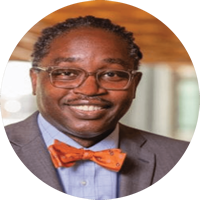Why do Black Males Consider Suicide? On-Demand Webinar
Suicidologists have focused on the quality and reproducibility of the science of why people die by suicide. Dr. Sean Joe, a social work scientist, highlights the emerging science on suicidal behavior among Black Americans, calling attention to important roles of sex and age that reflect not only differences in etiology, but also other important variations in relation to risk, the nature of suicidal behavior and its prevention and practice with Black boys and young men.

About Dr. Sean Joe, PhD, MSW
Dr. Joe is a nationally recognized scholar on suicidal behavior among Black Americans, particularly regarding the role of firearms as a risk factor and is expanding the evidence base for effective practice with Black boys and young men. His research focuses on Black adolescents’ mental health service use patterns, epidemiology and prevention of Black suicidal behavior, and family-based interventions to prevent urban Black American adolescent males from engaging in multiple forms of self-destructive behaviors.
Dr. Joe is the President of the Society for Social Work and Research (SSWR), whose members represent more than 200 universities and institutions, 45 states in the United States as well as from 15 countries. SSWR advances, disseminates, and translates research that addresses issues of social work practice and policy and promotes a diverse, just, and equitable society. Dr. Joe is a Fellow of the American Academy of Social Work and Social Welfare, the Society for Social Work and Research, and New York Academy of Medicine. He serves on the Steering Committee of the national Suicide Prevention Resource Center (SPRC), Standards, Training and Practices Committee of the National Suicide Prevention Lifeline, and the Scientific Advisory Board of the American Foundation for Suicide Prevention.
As founding Director of the Race and Opportunity Lab, which examines race, opportunity, and social mobility with an emphasis on informing policies, interventions, and intra-professional practice to lessen ethnic inequality in adolescents’ healthy transition to adulthood. The lab leading community science project is HomeGrown STL, which is a multi-systemic placed-based capacity building intervention to enhance upward mobility opportunities and health of Black males ages 12-29 years in the St. Louis region. His epistemological work focuses on the concept of race in medical and social sciences.
Watch the Recorded Webinar On-Demand
Enter your information to gain access.